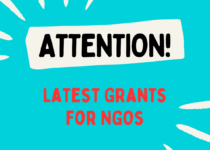Application Invited for Labour Feminist Participatory Action Research 2023 – 2024: Complete Information on Eligibility Criteria, Application and Selection Process
Introduction: Application Invited for Labour Feminist Participatory Action Research 2023 – 2024, APWLD is calling upon non-governmental, non-profit, local and national trade unions, feminists, and women’s rights organizations throughout Asia and the Pacific to participate in the Feminist Participatory Action Research (FPAR) of the Women Organising Workers program focused on Labour Digitalisation for 2023-2024.
This initiative aims to empower feminist and grassroots women’s organizations by enabling them to document their experiences and reveal the effects of digital surveillance, digitalization, and automation on women’s work. Partner organizations from the region will be selected to conduct collaborative FPAR projects addressing women workers’ organization, labor rights, and the impact of digitalization.
Through this effort, APWLD seeks to amplify the voices and concerns of women workers in the digital age, fostering collective action for equitable outcomes.
Last Date to Apply: 10th September 2023
Yes I want to LEARN How to Leverage Technology in NGO Operations>>>>Go Here
Labour Feminist Participatory Action Research 2023 – 2024 Grant Details
- The impact of digitalization on women’s labour rights, including gender-based violence at workplace at local or national level, specifically in these following streams:
- Algorithms, digital surveillance and datafication. The toxic masculinity and patriarchal mindsets can be made worse by algorithms and datafication. It isn’t impartial. Artificial Intelligence (AI) and algorithm management (AM) are biased towards women. Outdated prejudices may be perpetuated by the terms used in the data filtration. Workers who conduct business in person increased surveillance as well by implementing work quotas and more precise worker location tracking.
- Automation. Automation is the process by which machines replace tasks previously done by humans. It brings devastating impacts to women workers such as job loss, job displacement and income inequality across different sectors.
- Labour organizing and collective action in the digitalized world of work – All over Asia and the Pacific, labour and feminist movements start to mobilize and organize collective power in addressing labour rights and rights to decent work to challenge neoliberal policies, manifested in the form of the precariousness and labour rights violation against women workers.
Yes I want to learn Monitoring & Evaluation for NGOs>>>>>>Check Out Here
Labour Feminist Participatory Action Research 2023 – 2024 Eligibility Criteria
APWLD will select six to eight trade unions/local organisations who will lead the FPAR on labour rights in Asia Pacific. Unions and feminist organisations based in the Pacific and other sub-regions as East Asia are strongly encouraged to apply. We are seeking non-governmental, non-profit, local or national trade unions. APWLD will consider the following when selecting the organisations for this process:
- Sub-regional representation;
- Recommendations/ references from APWLD members;
- Diversity of Trade Unions, Workers’ Groups and Migrants Workers Organisations in Asia and the Pacific;
- Theme of the FPAR: (priority will be given to the FPAR that focuses on women labour rights in digitalisation, particularly three sub themes being mentioned);
- Able to communicate in English or to provide a dedicated translator/interpreter to support the research team throughout the FPAR journey.
Labour Feminist Participatory Action Research 2023 – 2024 Funding Information
APWLD will provide each partner organisation with a sub-grant not more than 13,000 USD throughout the FPAR journey. The small sub-grant should cover salary costs of a dedicated young woman researcher and activities to conduct FPAR. Another flow of sub-grant, following the completion of the FPAR, will be provided to the partner organisations to conduct advocacy activities at local and national levels to support their FPAR journey. This sub-grant supports mobilisation, capacity building, research activities of the selected partners, however, does not include any other costs related to institutional sustainability or maintenance.
APWLD will also support the young women researchers and mentors to participate in regional capacity building workshops, provide advocacy and networking opportunities. FPAR partners will be able to gain knowledge in International Human Rights standards and Labour rights in digitalisation related to their area of research. Through a combination of face-to-face and online modules, they will share the frameworks within their communities, learn practical research skills, and develop a community-based research plan. The main language used during the FPAR journey will be English.
Labour Feminist Participatory Action Research 2023 – 2024 How to Submit Application
Interested organisations shall submit:
- Completed application form
- Budget proposal
- Expression of interest
- Recommendation / reference letter from at least two other women’s or grassroots organisations (preferably from an APWLD member).
Steal Our Best Premium Resource for Proposal Writing For Free>>>>Click Here
Reference to Official Website APWLD
Our information bears no cost (it’s absolutely FREE), don’t let valuable information slip away.
Join our community of avid readers who are always in the know. Subscribe to our website; stay connected and engaged with the latest news, trends, and developments by subscribing today.
(PUSH the bell ICON)
Leverage the power of knowledge to propel your organization to new heights. Don’t miss out – explore our content
- Latest Funds for NGOs,
- NGO Jobs
- Resources (Helpful Guides and Courses)
- Premium Resources
- NGO related articles
Empowering Humanity through Funds, Resources and Collective Action
Sharing is Appreciated



